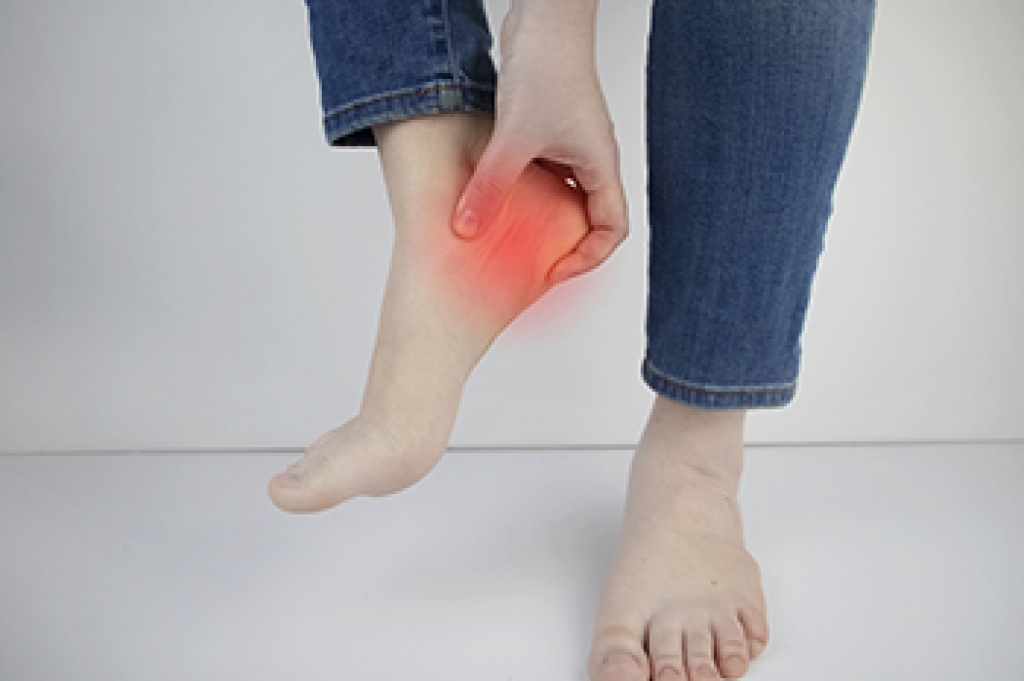 Plantar fasciitis is a foot condition in which the plantar fascia, a ligament that stretches along the bottom of the foot and connects the heel bone to the toes, becomes inflamed. It is often caused by overuse or repeated impact on the heel, which occurs when we walk, run, or stand. The most common symptom of plantar fasciitis is a sharp pain near the heel that is typically at its worst first thing in the morning or after exercising. Plantar fasciitis can be treated through activity modifications, wearing orthotics, and regularly stretching the feet. For more information about plantar fasciitis, please consult with a chiropodist today.
Plantar fasciitis is a foot condition in which the plantar fascia, a ligament that stretches along the bottom of the foot and connects the heel bone to the toes, becomes inflamed. It is often caused by overuse or repeated impact on the heel, which occurs when we walk, run, or stand. The most common symptom of plantar fasciitis is a sharp pain near the heel that is typically at its worst first thing in the morning or after exercising. Plantar fasciitis can be treated through activity modifications, wearing orthotics, and regularly stretching the feet. For more information about plantar fasciitis, please consult with a chiropodist today.
Plantar fasciitis can be painful and interfere with your daily activities. If you are experiencing foot or heel pain and believe you may be afflicted with plantar fasciitis, please consult with one of our chiropodists from West Toronto Foot & Ankle Clinic Inc. . Our chiropodist will assess your condition and provide you with quality foot and ankle treatment.
What Is Plantar Fasciitis?
Plantar fasciitis refers to the inflammation of the plantar fascia, a ligament that runs along the bottom of the foot and connects the heel bone to the toes. Repetitive activities, such as running or jumping, can injure the plantar fascia over time. Plantar fasciitis can also be caused by flat feet, high arches, pregnancy, and activities that put excessive pressure on your feet, like standing all day for work. When the plantar fascia becomes inflamed, it causes pain and discomfort.
Symptoms
Typical symptoms of plantar fasciitis include:
- Stabbing pain near the heel
- Pain that is worst in the morning or after a period of rest
- Pain that increases after exercising
- Swelling
- Tightness in the Achilles tendon
Diagnosis
Plantar fasciitis is typically diagnosed via medical history and physical examination.
Treatment
Treatments for plantar fasciitis include resting and icing the affected foot, stretching the foot, taking medications to reduce inflammation, and wearing orthotics. In severe cases where pain does not improve with conservative treatments, injections or surgery may be recommended.
If you have any questions please feel free to contact our office located in Toronto, ON .
